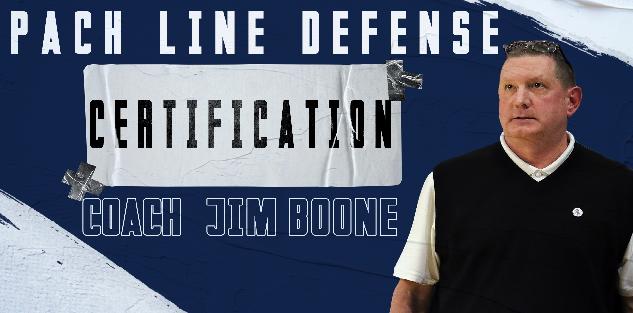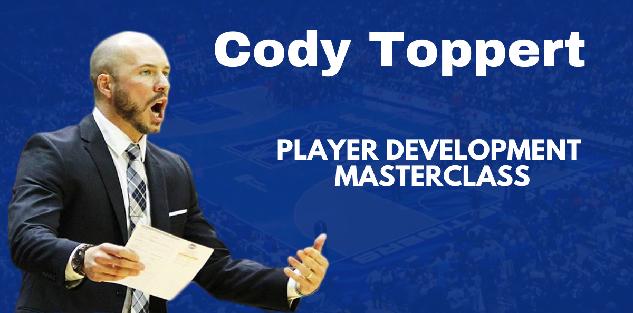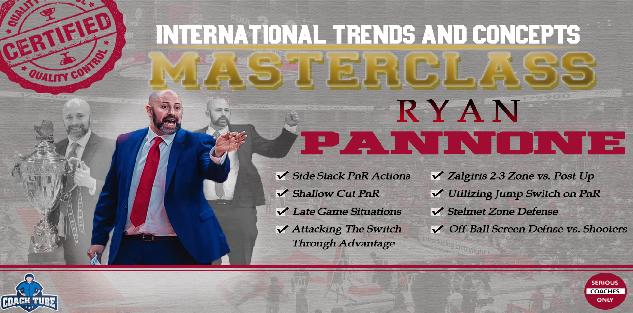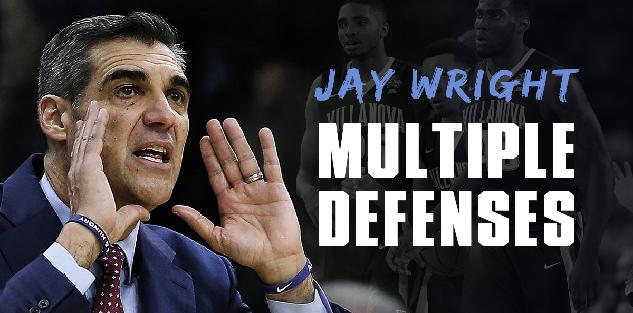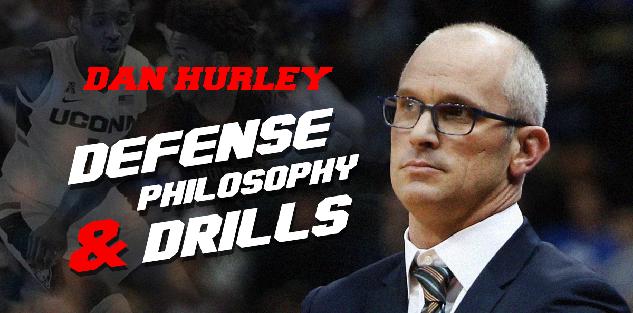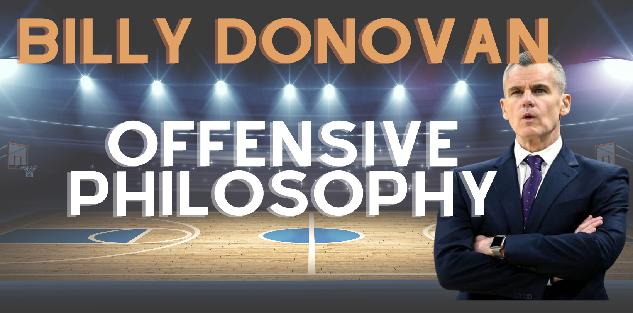Featured courses
- Two Great Game Situational Workouts For the Basketball Offseason by Grant Young
- Two Reads Basketball Players Must Understand Before Executing the Ball-Screen by Grant Young
- Two of LSU Coach Kim Mulkey’s Game-Winning Inbounds Plays by Grant Young
- Three Effective Early-Season Defensive Basketball Drills by Grant Young
- Four Essential Tips For Basketball’s 1-3-1 Zone Defense by Grant Young
- Four Zone Defense Drills to Strengthen Your Team by Grant Young
- How to Beat the Three Most Common Pick and Roll Coverages by Grant Young
- Two Drills to Improve Shooting at the Start of the Basketball Season by Grant Young
- Core Basketball Principles That Dallas Mavericks Coach Sean Sweeney Teaches by Grant Young
- Three Competitive Shooting Drills For Your Basketball Team by Grant Young
- How To Teach The ‘I’ Generation of Basketball Players by Grant Young
- Three Elite Drills to Begin a Basketball Practice With by Grant Young
- How to Build a Championship-Winning Basketball Team Culture by Grant Young
- Two of Texas Women’s Basketball Coach Vic Schaefer’s Tips For Team Culture by Grant Young
- Atlanta Dream WNBA Coach Brandi Poole’s Four Sets for Secondary Offense by Grant Young
- NC State Basketball Coach Brett Nelson’s 4 Crucial Point Guard Qualities by Grant Young
- Kentucky Coach Mark Pope’s Five Guard Rules For Offense by Grant Young
- McNeese State Basketball Coach Will Wade’s 4 Core Pillars by Grant Young
- 4 Tips To Instantly Improve Your Free Throw Shooting by Tyler Linderman
- Assemble a Championship-Caliber Basketball Rotation by Brandon Ogle
- Two of UConn Coach Dan Hurley’s Key Defensive Drills by Grant Young
- Four Post Moves All Basketball Forwards Should Have In Their Bag by Grant Young
- Four of Baylor Coach Nicki Collen’s Midseason Pick and Roll Adjustments by Grant Young
- WNBA Legend Sue Bird’s Two Tips For Attacking on Offense by Grant Young
- Houston Coach Kelvin Sampson’s Three Keys for Building a Basketball Program by Grant Young
- Two of Tom Izzo’s Top Michigan State Defensive Drills by Grant Young
- Four of Olympic Gold Medalist Coach Mechelle Freeman’s Relay Race Strategies by Grant Young
- Three Key Strategies Will Wade Uses to Build a Dominant Team by William Markey
- Five UConn Huskies Men’s Basketball Plays That You Can Use by Grant Young
- Three Tips for Maintaining Team Culture at the End of a Basketball Season by Grant Young
- Three Dribble Drive Motion Drills to Teach Your Basketball Team by Grant Young
- Three Dribbling Drills For Non-Primary Ball Handlers by Grant Young
- Four Advanced Ball Handling Drills For Basketball Guards by Grant Young
- Three Tips to Sharpen Your Post Player’s Footwork in Basketball by Grant Young
- These Three Pick and Roll Drills Are Crucial For Any Ball Screen Offense by Grant Young
- Three Closeout Drills to Improve Basketball Shooting Defense by Grant Young
- Three Tips to Perfect the Packline Defense in Basketball by Grant Young
- Four Keys to Executing the Read and React Offense in Basketball by Grant Young
- Three Tips to Develop Elite Basketball Shooters by Grant Young
- Three Crucial Keys to Executing the 5 Out Offense in Basketball by Grant Young
- These Three Offensive Sets Will Help You Beat Any Zone Defense by Grant Young
- Three Transition Basketball Drills To Play With More Pace by Grant Young
- Three 5 Out Offense Drills Any Basketball Coach Can Use by Grant Young
- Four Vital Techniques for a Motion Offense in Basketball by Grant Young
- Three Baseline Inbounds Plays To Win Your Basketball Team Games by Grant Young
- Four Drills For Sharpening the European Ball Screen Offense by Grant Young
- Three Positioning Tricks For a Basketball Zone Offense by Grant Young
- Three Rules to Perfecting Basketball's Lock Left Defensive System by Grant Young
- UCLA WBB Coach Cori Close’s Two Keys to Winning the Mental Game by Grant Young
- Four of Alabama Coach Nate Oats’ Favorite Basketball Drills by Grant Young
- Three Ways To Turn Transition Offense in Basketball Into Points by Grant Young
- Three Drills to Master Basketball's Pack Line Defense by Grant Young
- Three Transition Defense Drills to Halt Fast Breaks by Grant Young
- Four Offensive Rebounding Drills to Win Second Possessions by Grant Young
- 4 Defensive Technique Drills from Boston Celtics Assistant Coach Brandon Bailey by Marek Hulva
- 5 Drills to Improve Ball Handling by Tyler Linderman
- 13 FUNNY BASKETBALL GIFS by Alex
- BASKETBALL SPEED AND AGILITY: 8 QUESTIONS FOR COACHTUBE EXPERT RICH STONER by Jaycob Ammerman
- Defensive Strategies for Basketball by Ryan Brennan
- 4 Keys To Turning Your Program Into Championship Contender By Dallas Mavericks Coach Sean Sweeney by Marek Hulva
- 5 Components to Creating a Winning Basketball Program by Justin Tran
- Guide to Becoming a Lethal Scorer in Basketball by Justin Tran
- Zone Defense In the NBA Eastern Conference Finals by James Locke
- Mastering Court Mobility: Tips for Effective Movement in Basketball by Justin Tran
- 5 Basketball Shooting Drills: How to Develop a Sharpshooter by James Locke
- 6 Points of Emphasis for a Successful 5 Out Offense by Jaycob Ammerman
- Effective and Efficient Methods to Practice During the Basketball Season by Justin Tran
- Three Great Passing Drills From a Basketball Coaching Legend by Grant Young
- 7 Principles For Perfecting the Princeton Offense in Basketball by Grant Young
- How to Replicate A Modern NBA Offense by Grant Young
- Three Great Two-Ball Dribbling Drills For Basketball Development by Grant Young
- Two Rebounding Drills to Win Your Basketball Team Championships by Grant Young
- How to Improve Your Basketball Team’s Defense With the Shell Drill by Grant Young
- How Baylor Basketball’s Scott Drew Develops Elite Guard Play by Grant Young
- Off-Ball Movement Tips and Strategies: Lessons From the NBA Finals by James Locke
- Player Development: Scott Drew’s Tips for Producing NBA Guards by James Locke
- How to Execute a Spread Offense in Basketball by Grant Young
- Four Quality Quotes From Four Final Four Coaches by Grant Young
- A Guide to the Pack Line Defense by Alex Martinez
- 3 Defensive Build Up Drills to Improve Team Basketball Defense by Grant Young
- Battle of Two Great Coaches: Best Plays from the NBA Finals Contenders by Justin Tran
- 10 Creative Ways Athletic Programs Can Use a Video Board to Raise Money by Coach Williams
- How to Use 3 on 3 to Improve Your Basketball Team by Grant Young
- How to Defend the Pick and Roll by Grant Young
- Mastering Basketball Defense: Techniques, Drills, and Strategies for Success by Justin Tran
- Three Tips From The Coach Who Developed Giannis Antetokoumnpo by Grant Young
- 2023 NBA Draft: Skills and Technique from Top Prospects by Justin Tran
- From College to the Pros: Transitioning the Dribble Drive Offense by Justin Tran
- Positionless Basketball: Redefining Roles on the Court by Justin Tran
- Revolutionize Your Offense: Proven Concepts to Elevate Your Basketball Game by Justin Tran
- 5 Essential Fastbreak Drills Every Basketball Coach Should Know by James Locke
- How to Run a Circle Offense in Basketball by Grant Young
- Game-Changing Strategies: ATO Plays in the EuroLeague and Olympics by Justin Tran
- How to Stand Out at Basketball Tryouts by Grant Young
- How to Improve Your Basketball Team’s Transition Defense by Grant Young
- Indiana Fever GM Lin Dunn’s Two Keys For Women’s Basketball Coaches by Grant Young
- Strength Training Strategies Every Basketball Player Should Have by Grant Young
- A WNBA Basketball Coach’s Four Priorities In Transition Defense by Grant Young
- Three Adjustments to Make When Your Basketball Offense Isn’t Working by Grant Young
- Three Pillars to Applying Defensive Pressure on the Basketball Court by Grant Young
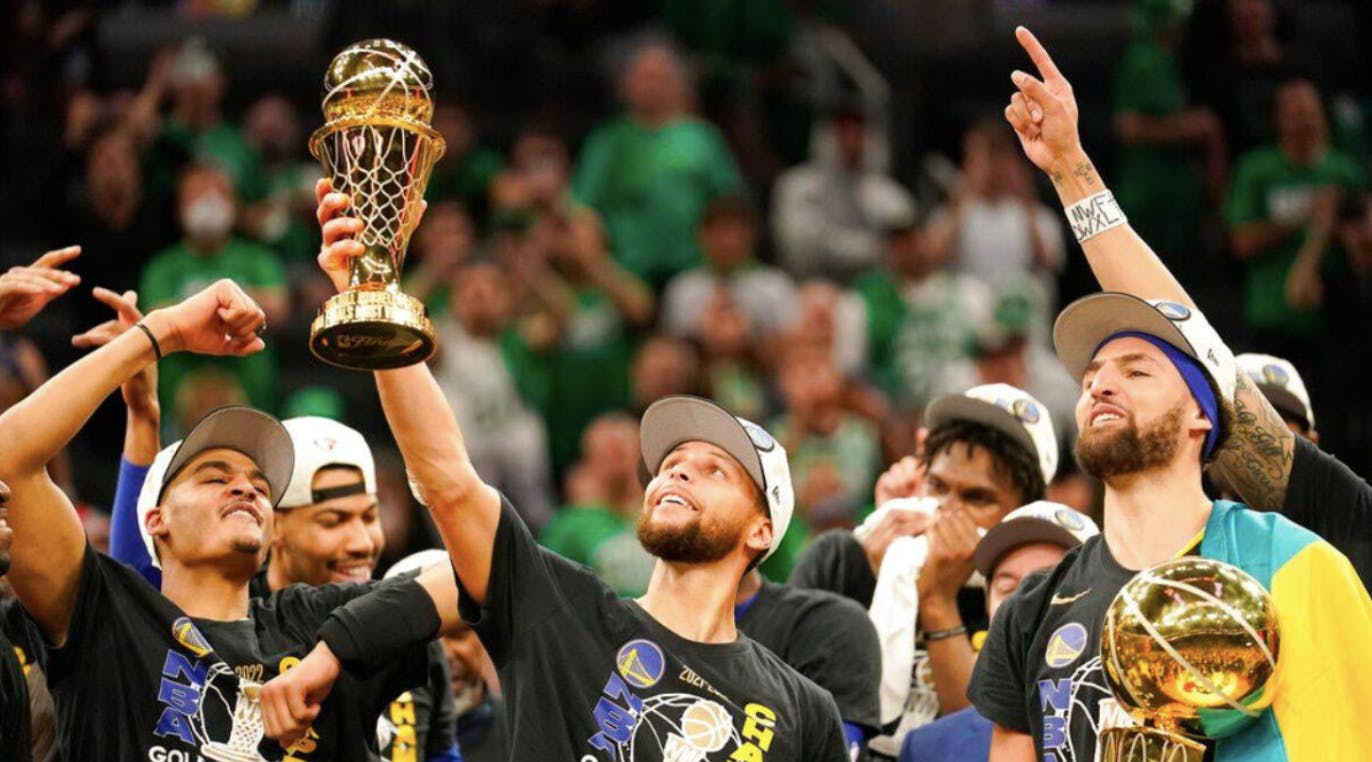
5 Components to Creating a Winning Basketball Program
- By Justin Tran
Are you struggling to establish a culture within your team? In the basketball world, building a winning culture is vital to long-term success. A strong basketball culture sets the foundation for teams to excel, attracting fans and sponsors alike. It promotes teamwork, trust, and commitment among players, resulting in better on-court performance.
A winning culture emphasizes continuous improvement and accountability in everything from strategic game plans to player development. Coaches and players who prioritize the development of a winning culture gain a competitive advantage in their league, increasing their chances of winning and championships. Begin developing your basketball program's winning culture today and witness the transformative power it has on your team's success.
Creating Culture
Queens University basketball coach Bart Lundy is well known for his outstanding leadership skills and the winning culture he has fostered there. As a highly accomplished coach, Lundy's strategic approach and dedication to his players have propelled the team to extraordinary success.
Lundy, for one, is aware of the significant influence of factors outside of the basketball court. He understands the importance of providing a supportive and nurturing environment for his players off the court. Lundy ensures that his athletes feel valued, motivated, and prepared to excel academically and personally by cultivating a positive and inclusive environment.
Second, Lundy prioritizes recruiting players and staff who share the program's values and vision. He builds a cohesive and driven team by carefully selecting individuals with the necessary skills, character, and work ethic.
Leadership and Caring for Your Athletes
When it comes to creating a successful sports program, strong leadership and caring for your athletes is your top priority. Outstanding sports leaders recognize the importance of creating a positive and nurturing environment for their athletes' growth and well-being. Coaches can inspire their athletes to achieve new levels of performance by demonstrating leadership qualities such as effective communication, motivation, and mentorship. Furthermore, genuine concern for athletes' physical and emotional well-being fosters trust and loyalty, leading to a stronger team dynamic and improved performance. Implementing leadership and caring strategies within your sports program not only improves the overall experience of the athletes but also leaves a lasting legacy of success.
As you develop your leadership abilities and foster a culture of care, you'll see your athletes succeed on and off the field. Coach Darrin Savino of the UCLA Bruins mentions that putting in extra time and effort with your athletes is a prime example of this. This can be from putting in an extra 30 minutes before or after practice with individual athletes to ensure you are giving them the attention they require. Find out more here about how Darrin Savino establishes a winning culture.
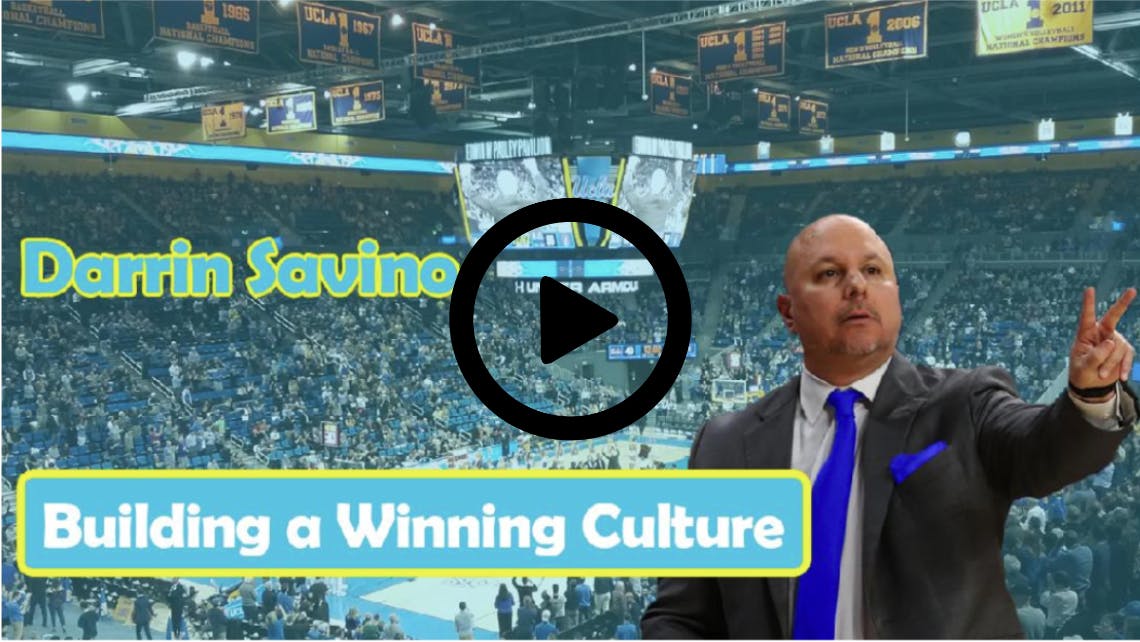
Creating and Maintaining Relationships
In the realm of coaching, maintaining strong relationships with your players is essential for their growth and development. As Penn State football coach James Franklin wisely stated, "A coach tells you what you need to hear, not what you want to hear." This sentiment holds true when it comes to having uncomfortable conversations with your athletes. By being honest, challenging them, and holding them accountable, coaches demonstrate their genuine care and commitment to their players' success. These conversations may be tough, but they are necessary to push players in the right direction and help them reach their full potential. By prioritizing open and honest communication, coaches build trust and foster a culture of continuous improvement within their team. Embrace the responsibility of guiding and supporting your players through uncomfortable conversations, and watch as your relationships thrive and your team achieves greatness. Explore how Coach Franklin maintains relationships with his players here.
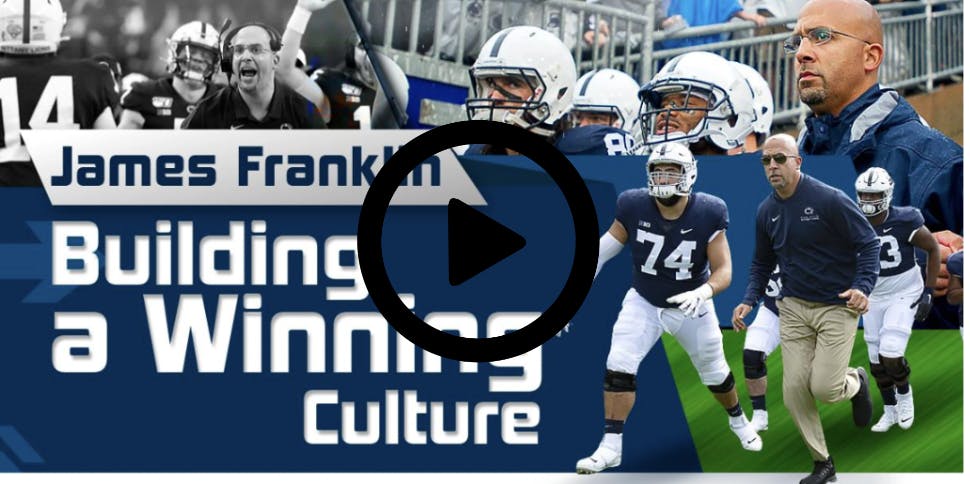
Player Development and Work Ethic
Cody Toppert, former NBA player and current assistant coach of the LSU Tigers, is renowned for his player development philosophy, which emphasizes the growth of both individual players and the overall team.
Coach Toppert breaks it down into three topics of skills vs. concepts, roles vs. growth, and decision making differentiating between individual capabilities and team potential. Toppert's approach is consistent with the belief that effective player development requires a focus on expanding players' skills beyond their current roles while also fostering team chemistry. Toppert creates an environment that promotes individual growth and team cohesion by incorporating small-sided situations and team concepts into his coaching. Through his expertise and commitment to player development, Toppert drives the LSU Tigers to excel on the court. Learn here how Toppert's coaching philosophy and work ethic contribute to team success and propel players to reach their full potential. Discover more here on how Coach Toppert works on player development.
Main Concepts Vital for A Successful Team
To achieve success, Sean Sweeney, assistant coach for the Dallas Mavericks, emphasizes team unity, competitiveness, sound decision-making, and toughness. His coaching philosophy emphasizes team unity and instilling a sense of collective purpose. Building a strong sense of togetherness, Sweeney emphasizes that the team's collective success always takes precedence over individual achievements. Sweeney's approach also fosters a supportive environment in which players collaborate to achieve common goals.
Furthermore, he instills a fierce competitive spirit in his players, he believes that there is a distinct difference between teaching and competing. This mindset drives them to give their all in every game and practice, constantly pushing their limits and striving for excellence. Sweeney values smart decision-making, equipping players with basketball IQ for informed plays. Moreover, he focuses on building physical and mental toughness. He recognizes that basketball demands resilience and the ability to overcome challenges. Through rigorous training and mental conditioning, Sweeney prepares his players to embrace adversity, pushing them to their limits and building their toughness. Discover how Sean Sweeney's core principles can elevate your basketball team and lead to sustained success. Find out more here about how Coach Sweeney guides his team.
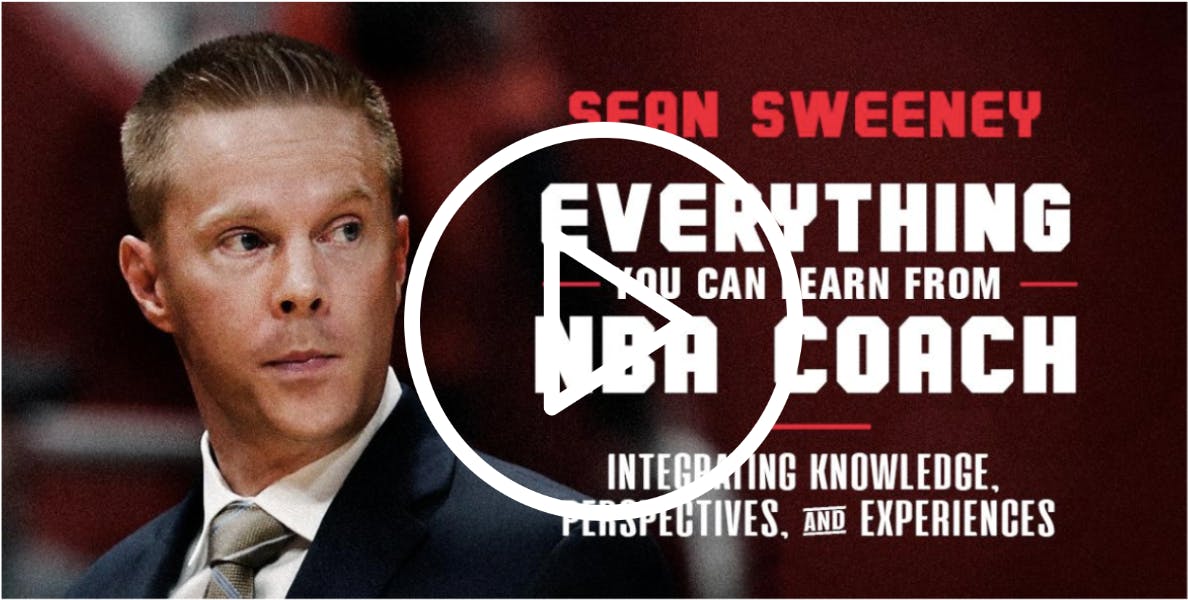
Conclusion
In conclusion, establishing a winning culture within a basketball team is crucial for long-term success. A strong basketball culture not only enhances on-court performance but also attracts fans and sponsors. It promotes teamwork, trust, and commitment among players, setting the foundation for excellence. The examples of successful coaches like Bart Lundy, Darrin Savino, James Franklin, Cody Toppert, and Sean Sweeney highlight the key elements necessary for building a winning culture. These elements include creating a supportive and inclusive environment, prioritizing player development, demonstrating effective leadership and care, maintaining strong relationships, fostering a competitive spirit, emphasizing sound decision-making, and building physical and mental toughness.

